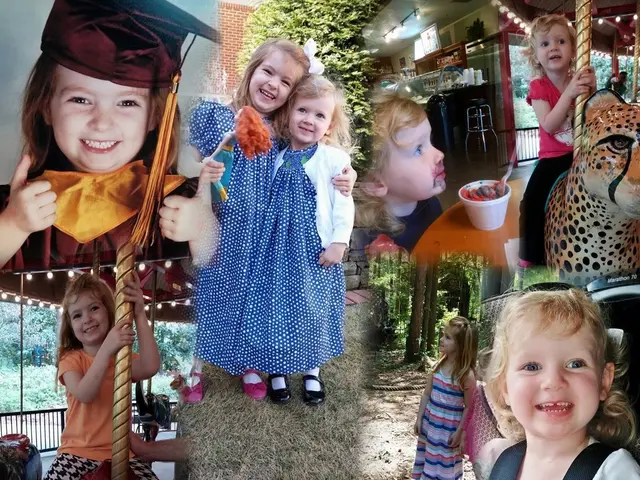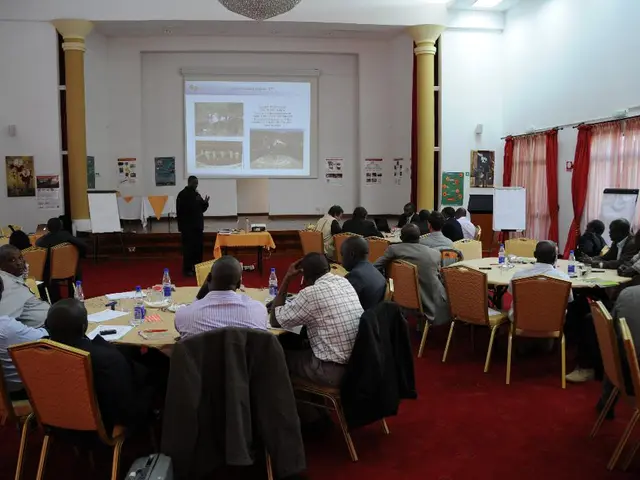Navigating Leadership Through Chaos: Strategies for Success in a Complex and Unpredictable Environment
Organisations often grapple with challenges brought about by rapid change, uncertainties, complicated processes, and ambiguous trends. These hurdles, known as volatility, uncertainty, complexity, and ambiguity (VUCA), have historically been a concern for businesses. Yet, some organisations demonstrate exceptional resilience in navigating these conditions.
Originating as a tool to understand leadership during times of instability, the concept of VUCA was initially developed to analyse successful leaders' attributes. It was observed that these leaders excelled due to their strong "vision," allowing them to craft adaptable future scenarios. As research progressed, analysts identified the defining characteristics of visionary leadership, including flexibility, collaboration, foresight, communication, and active listening.
However, merely listing these traits did not empower individuals to develop them. A new approach consolidated military training techniques with brain science to develop individuals' skills in harnessing effective planning and strategic thinking in unpredictable environments. The techniques were tested in various sectors, yielding impressive results, and the unique approach was recognized for its groundbreaking research.
This innovative method is referred to as the Mindshift Method.
Decision-making does not inherently improve with an abundance of information in stable environments. However, in volatile situations, data loses its reliability, and a search for it may induce inaction. To make decisions in uncertain conditions, it is crucial to rely on limited data, a cognitive ability that distinguishes human brains from computers.
Focusing on "exceptional information," or deviations from established norms that indicate emerging hazards or opportunities, enables the detection of these unique details. This ability to perceive unique nuances, similar to a child's imaginative perception, fosters the capacity to conceive possible futures. To cultivate this skill, shift away from abstract reasoning and zero in on identifying distinct aspects of people and situations, thereby triggering the ability to imagine potential outcomes.
Here are three techniques to cultivate superior leadership skills:
- Employ Active Questioning over Active Listening in Volatile situations. Traditional active listening is less beneficial in uncertain conditions, and Active Questioning is more effective for unveiling crucial information. This method entails delaying "why" questions, which often reinforce preconceived notions, and emphasizing questions like "what," "who," "when," "where," and "how." These questions bring to light unexpected details, prompting the brain to recognize exceptions and develop new perspectives.
- Plan and Optimize the Planner. Its key principle in negotiating unpredictable settings is prioritizing the process of planning over the plans themselves. While detailed plans lose relevance swiftly, the very act of planning encourages adaptability and problem-solving skills.
- Perform an Emotion Reset when faced with fear and anger. Fear and anger act as warnings of environmental instability, triggering a fight-or-flight response. Suppressing these emotions, however, may inhibit the ability to recognize genuine threats. Instead, use an Emotion Reset technique to re-evaluate the emotional response in light of prior successful experiences in similar situations. If the emotions subside, it suggests an overreaction, advising continuation of existing plans. If the emotions persist, it signifies genuine urgency, mandating immediate action and replanning.
The future is uncertain, with shifting markets, supply chains, technology, and consumer behavior. However, organisations can thrive in this landscape by embracing the principles of visionary leadership and adopting innovative methods for navigating complex environments.
Reference(s):
Fletcher, A., Gaines, T. L., & Loney, B. (2023b, September). How to Be a Better Leader Amid Volatility, Uncertainty, Complexity, and Ambiguity. Harvard Business Review. https://hbr.org/
^1 https://hbr.org/2020/12/6-strategies-for-leading-through-uncertainty^2 https://hbr.org/2018/09/the-disruption-mindset^3 https://hbr.org/2019/04/the-important-role-of-creativity-in-strategy^4 https://www.mckinsey.com/business-functions/organization/our-insights/white-paper-navigating-complexity-tools-methods, and approaches-for-actions^5 https://www.forbes.com/sites/stankovich/2021/10/29/organizations-awaiting-a-clear-way-forward-need-design-thinking/?sh=436525692cf1
- To cultivate visionary leadership skills necessary for navigating volatile business environments, employees can employ the Mindshift Method, which combines military training techniques with brain science to enhance strategic thinking and planning capabilities.
- In the pursuit of exceptional information in rapidly changing business conditions, practitioners should prioritize Active Questioning over Active Listening, focusing on questions like "what," "who," "when," "where," and "how" to unveil crucial details, thus enabling the detection of emerging hazards or opportunities and fostering the ability to conceive possible futures.







